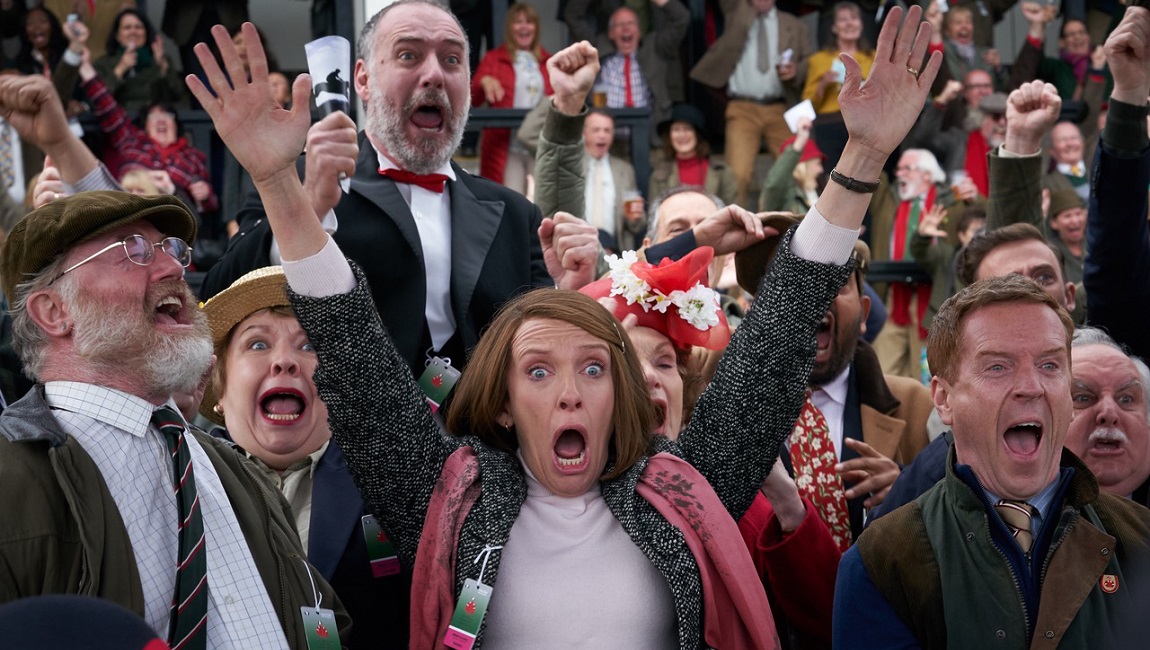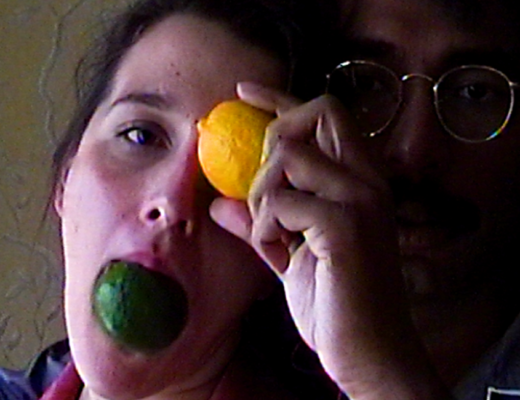The best way to understand the character of Euros Lyn’s Dream Horse is as the type of film your mother describes as “sweet” and insists you watch at your earliest convenience. Theater owners need only schedule 10:30 a.m. showings daily to earn maximum profit; it’s enough to make you think you hear the crinkling of hard candy wrappers and hacking coughs while watching the film. That’s not to suggest such films don’t offer their own pleasures, only that anyone in the mood for adventurous filmmaking or challenging themes should pretty obviously look elsewhere. Based on a true story — because of course it is — Dream Horse tells the tale of how the residents of an economically-depressed Welsh village banded together to sire and raise a racehorse in the hopes of making a few bucks and ushering a little excitement into their staid lives. Local townswoman Jan Vokes (Toni Collette) spearheads the venture, a middle-aged mother of two grown children who works two jobs to support herself and her layabout husband, Brian (Owen Teale). Stuck in a marriage whose spark was extinguished long ago, Jan sees the syndicate as an opportunity to give meaning to her life, “a reason to wake up in the morning.” It also allows for all sorts of fish-out-of-water comic bits, as the small-town residents hob-nob with the notoriously wealthy racing elite as their horse, Dream Alliance, steadily rises through the ranks. And in case you were wondering, the answer is yes, an uncouth octogenarian does sneak beer into the owner’s box and wax graphic about the massive dump he took in the men’s room, all while impeccably dressed women gasp and men’s monocles pop.
This is actually not the first time this story has been told on the big screen: the 2015 documentary Dark Horse chronicled the same events and did so without the embellished soap opera theatrics. That’s not inherently a criticism, although it would have suited the film better if screenwriter Neil McKay committed to such flourishes in any sort of meaningful way. Much is made of the fact that Jan and Brian are struggling in their stagnant marriage, and that Dream Alliance gives them both a renewed sense of meaning and purpose, but what the film fails to do is show how this serves to strengthen their shared union in any way. There are countless scenes in which the two individually and privately bond with their equine charge, forehead planted against muzzle as a single horse eye does the emotional heavy-lifting, staring into the distance. But no such moments take place between Jan and Brian, and if by film’s end they seem better able to tolerate one another, the deeply felt love story that’s so clearly intended seems like nothing but faint shadow. The same can be said of a subplot involving another member of the syndicate, tax collector Howard Davies (Damian Lewis), a man with a troubled history in the horse-racing world whose marriage was nearly destroyed from past failures. A pointed scene mid-film reveals just how deep a rift still exists between Howard and his wife, but the movie likewise has no interest in plumbing these emotional depths, simply fast-forwarding to a wholly unearned happy ending that feels as though numerous scenes were left on the cutting room floor. Indeed, the film even fails to address why this town has fallen on such hard times, something that could have easily been accomplished through a single line of dialogue, and which might have afforded some semblance of authenticity or perhaps even socioeconomic substance to this true story.
Lyn, a director responsible for a handful of the more recent and well-known episodes of Doctor Who and Broadchurch, brings surprisingly little flair to the proceedings, save for the occasional eye-catching aerial shots of lush and winding racecourses. The sole singular moment in the entire film actually occurs in the end credits, as the real-life participants sing the song “Delilah” hand-in-hand with their filmic counterparts, the film’s intended sense of joy and playfulness gracing the screen for the first time. Collette is dependably good, radiating a warmth and humanity that sometimes sells even the film’s more maudlin scenes, and she and Teale share a few moments that hint at the story the rest of this film doesn’t have the gumption to tell. There’s certainly an audience for this kind of feel-good diversion, but when a more emotionally affecting and thematically probing documentary exists on the same subject, why bother with this middlebrow treatment? For a film that repeatedly reminds the viewer that one must take chances in order to live a rich and rewarding life, Dream Horse dramatically fails to heed its own advice.







